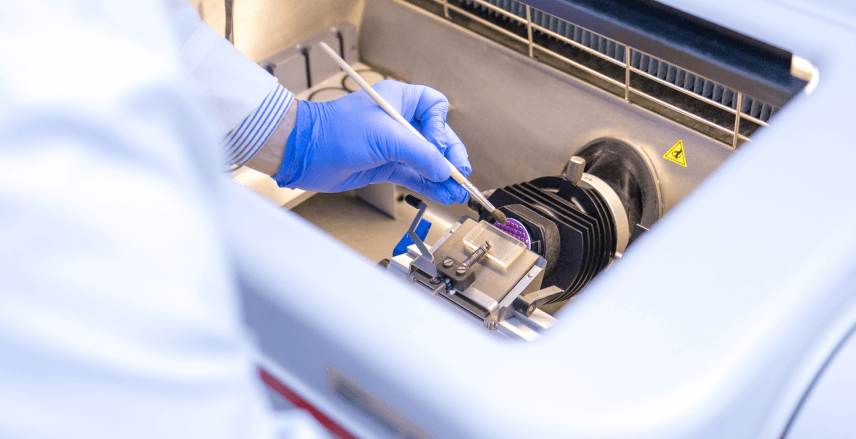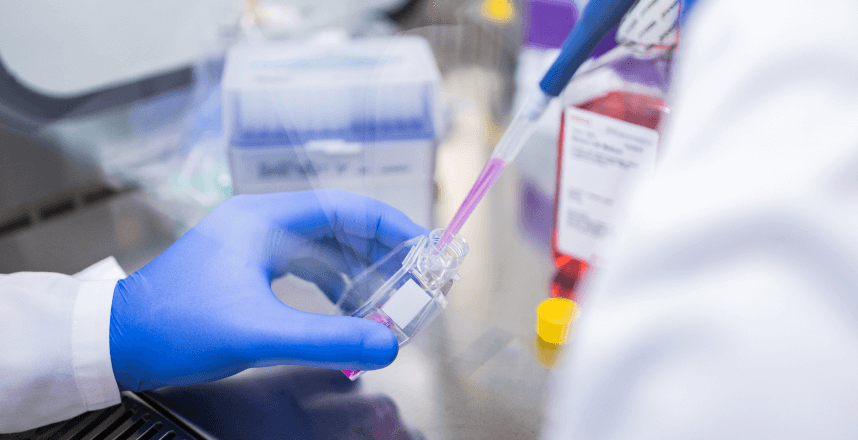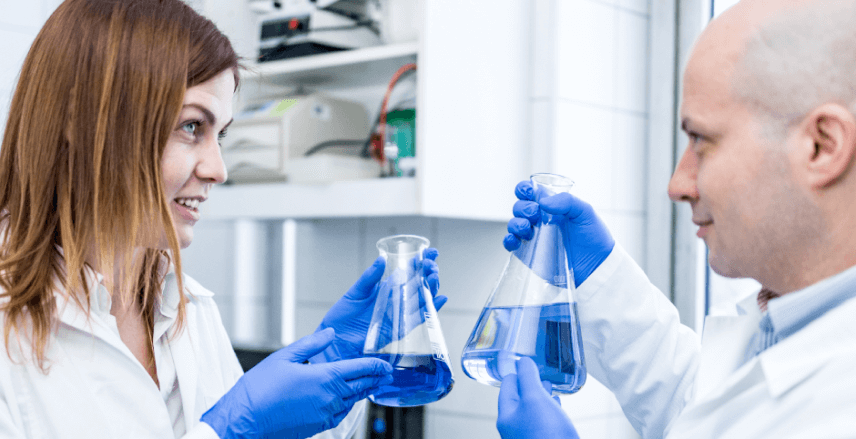Services
IN vivo
Important step in preclinical drug development is demonstrating the antitumor activity of a novel agent in animal models, as well as defining the dosage and schedule that is both efficient and non-toxic.
KINETO Lab proposes in vivo preclinical models which can be used per se or associated with imaging modalities to permit the evaluation new therapeutics efficacy in development phase.
our in vivo services
Mouse strains
Tumor models
PDTX models
IN VIVO toxicology and pharmacokinetic studies
IN VIVO drug efficacy studies
IN VIVO Imaging System
MOUSE STRAINS SUITABLE FOR ANIMAL STUDIES
In our animal house, we breed and maintain mouse strains under SPF conditions, and have all ethical approvals
Right choice for crucial tool
Experimental animal models are a crucial tool in the field of cancer research for testing new therapeutic approaches and validating their in vitro achievements. KINETO Lab provides you opportunity to choose the most adequate tumor bearing mice model as of high importance for successful evaluation of your therapeutic activity which can lead to candidate for clinical investigation.
Experimental animal models
We have all necessary approvals for animal experimentation which allow us to implant those models in immunodeficient (SCID, NOD-SCID and NSG) and immunocompetent (C57BL/6, BALB/c, BDF1 etc.) mice. If your model requires another strain of mice, or if you have custom enquire, we can solve husbandry and experiments with your custom choice.
Extensive experience
With our specific knowledge and experience which strain and sex is the most suitable for a particular tumor model, your research or development project will be done efficiently.
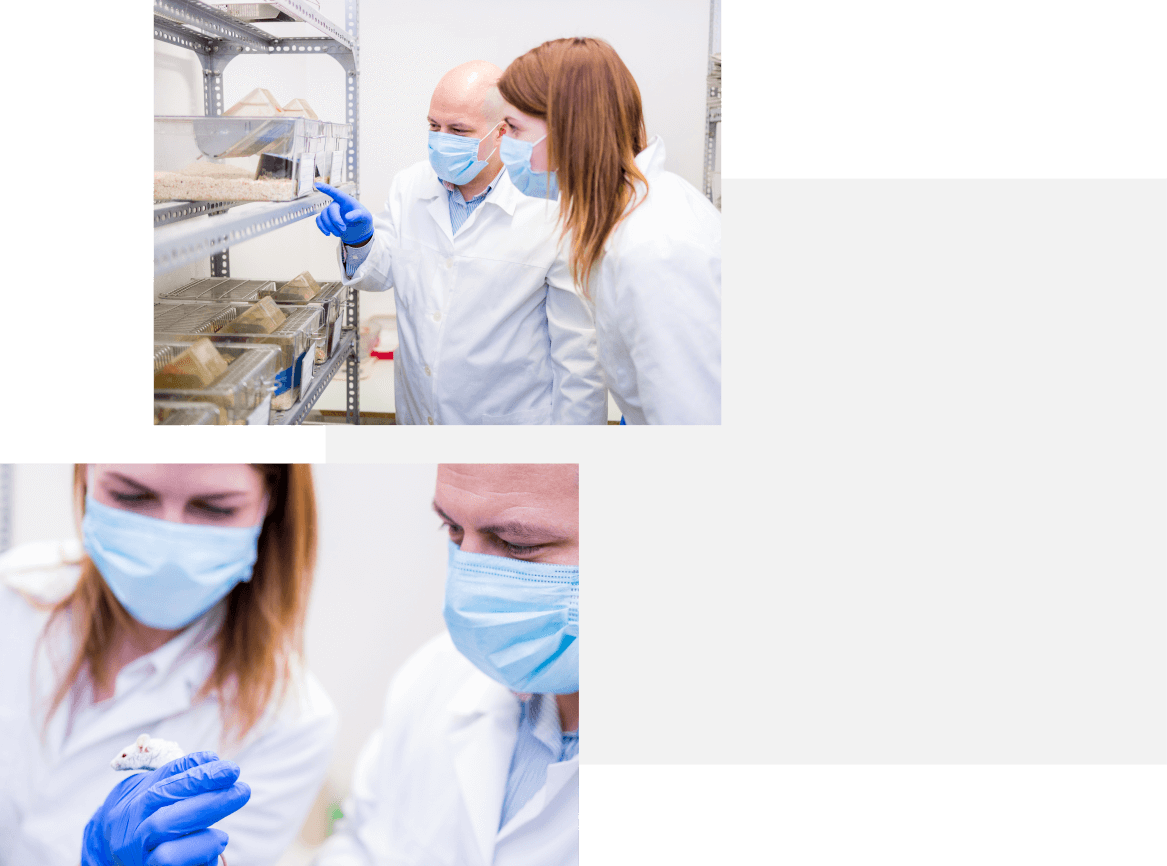
The list of routinely used animal models in our animal house
MOUSE STRAINS SUITABLE FOR ANIMAL STUDIES
In our animal house, we breed and maintain mouse strains under SPF conditions, and have all ethical approvals
Right choice for crucial tool
Experimental animal models are a crucial tool in the field of cancer research for testing new therapeutic approaches and validating their in vitro achievements. KINETO Lab provides you opportunity to choose the most adequate tumor bearing mice model as of high importance for successful evaluation of your therapeutic activity which can lead to candidate for clinical investigation.
Experimental animal models
We have all necessary approvals for animal experimentation which allow us to implant those models in immunodeficient (SCID, NOD-SCID and NSG) and immunocompetent (C57BL/6, BALB/c, BDF1 etc.) mice. If your model requires another strain of mice, or if you have custom enquire, we can solve husbandry and experiments with your custom choice.
Extensive experience
With our specific knowledge and experience which strain and sex is the most suitable for a particular tumor model, your research or development project will be done efficiently.

The list of routinely used animal models in our animal house
TUMOR MODELS
We possess a collection of 70 human cell lines and 10 murine cell lines, as well as patient-derived tumor samples to test your compounds in vivo.
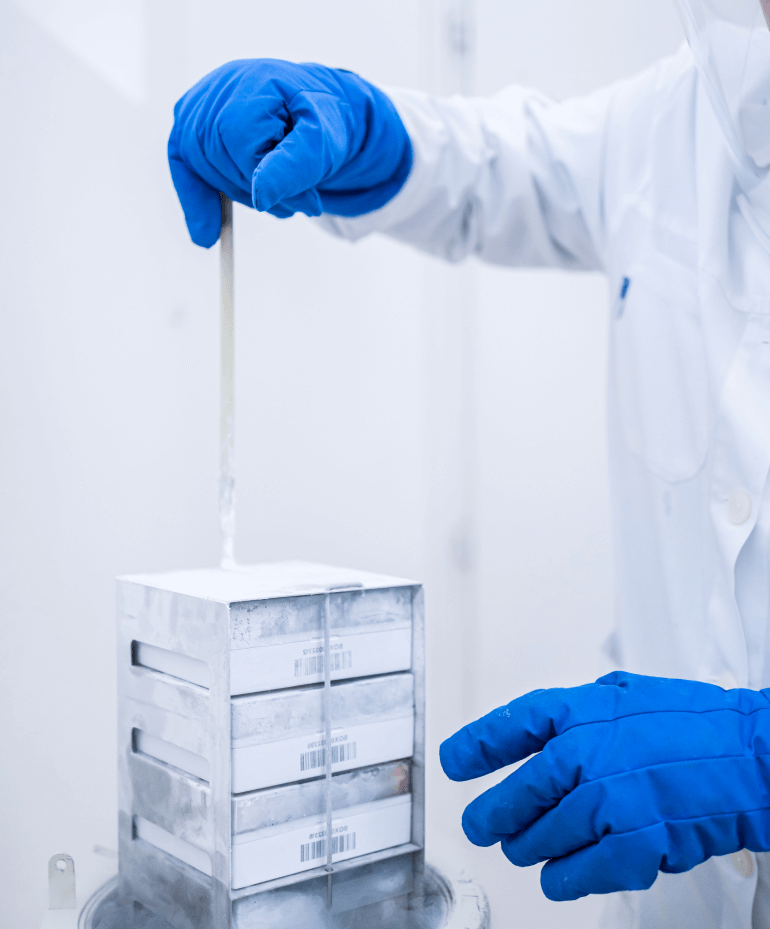
70
human cell lines
10
murine cell lines
The most suitable pattern
For our models, we have established patterns for number of cells or size of tumors to be inoculated or transplanted for a certain site of establishment, in order to develop models with suitable duration for quality antitumor or antimetastatic evaluation of therapeutic.
Xenograft
KINETO Lab has wide range of xenograft models established from cell lines derived from human cancer cells, which have been tested for their capacity to grow in immunodeficient mice, where you can test your compounds against human targets.
Allograft
The allograft tumor models, growing of murine tumors in immunocompetent mice, provide therapeutics investigation in presence of native immune system, and represent suitable platform for testing agents from immuno-oncology field.
PDTX
PDTX models are leading to more reliable results because they provide more complex and more heterogeneic properties representing clinical tumor microenvironment.
List of available cell line models
PDTX MODELS
KINETO Lab has also developed and validated patient-derived tumor xenograft (PDTX) models with unique characteristics allowing to study drug efficacy in vivo in clinically relevant models, reflecting tumor heterogeneity, and microenvironment of the patients.
Better preclinical model
Patient derived tumor xenografts (PDTX) are created when cancerous tissue from a patient’s tumor is implanted directly into an immunodeficient mouse. Isogenic cancer cell line based tumor models, including xenografts in mice were used previously mostly in the development of new anticancer drugs. Nowadays, xenografts from direct patient-derived tumor tissues in immunodeficient mice yield better models than experimental tumors originating from cell cultures.
PDTX MODEL establishment
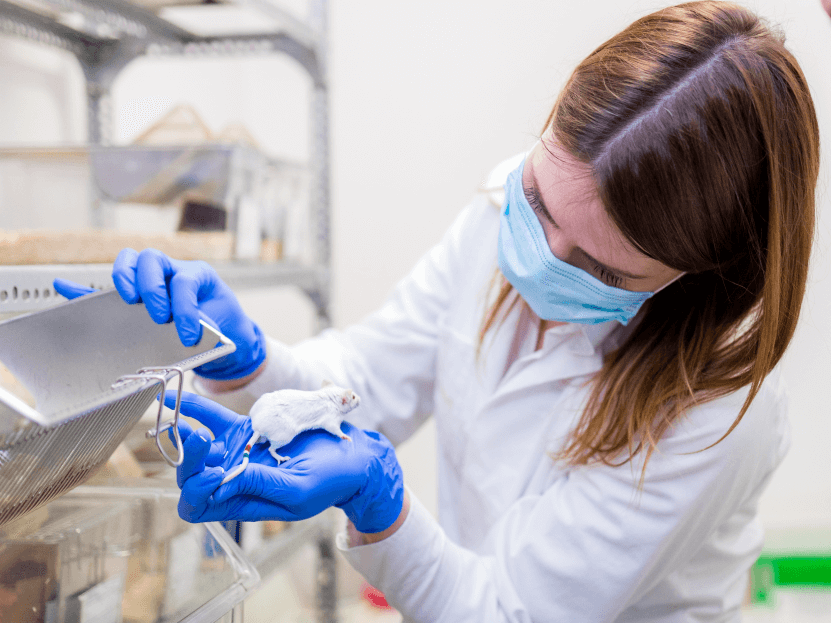
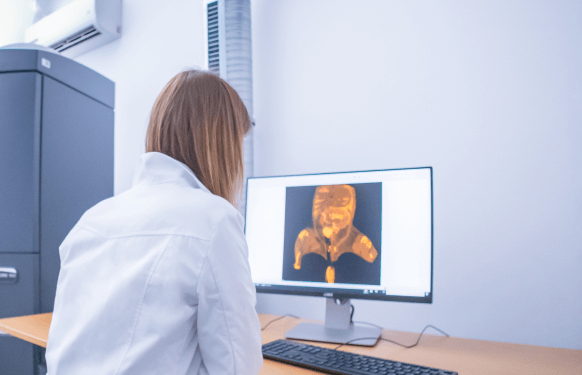
Wide range of investigations
The new method allows researchers to observe heterogeneous tumor cells with their surrounding tissue elements and matrices representing the clinical situation in patients much better. The cells in PDTX tumors are alive and functionally active through several generations after serial transplantation. Using these models we may investigate tumor response to different therapies, the selection of resistant cell populations and the formation of metastasis predicting the outcomes in the personalized therapy.
Brochure of available PDTX models
SCIENTIFIC IMPACT
PUBLICATIONS POWERED BY KINETO Lab’s PDTX MODELS
PDTX – DRUG DEVELOPMENT – LiPyDau
Safe delivery of a highly toxic anthracycline derivative through liposomal nanoformulation achieves complete cancer regression.
Füredi A, Tóth S, Hegedüs K, Szabó PT, Gaál A, Barta G, Naszályi LN, Kiss K, Bölcskei K, Szeltner Z, Bajtai E, Gombos B, Kiss D, Cserepes MT, Kiss A, Pokreisz P, Kenner L, Högler S, Magyar C, Cowles JD, Csiszar A, Tóvári J, Szüts D, Helyes Z, Varga Z, Mező G, Szakács G.
Mol Cancer. 2025 Oct 27;24(1):269.
PDTX – Establishment of Drug Resistance Model
Evolving Acquired Vemurafenib Resistance in a BRAF V600E Mutant Melanoma PDTX Model to Reveal New Potential Targets.
Tóvári J, Vári-Mező D, Surguta SE, Ladányi A, Kigyós A, Cserepes M.
Cells. 2023, 12(14), 1919.
PDTX – Drug Resistance Model in Drug Development
Realigned transsulfuration drives BRAF-V600E-targeted therapy resistance in melanoma.
Borbényi-Galambos K, Erdélyi K, Ditrói T, Jurányi EP, Szántó N, Szatmári R, Czikora Á, Schmidt EE, Garai D, Cserepes M, Liszkay G, Tóth E, Tóvári J, Nagy P.
Cell Metab. 2025 May 6;37(5):1171-1188.e9.
IN VIVO TOXICOLOGY AND PHARMACOKINETIC STUDIES
Tumor-free mice are used to test compound safety and pharmacokinetics:
Acute toxicology studies of a compound on healthy mice
1 administration. Different doses.
Chronic toxicology studies of therapeutic
multiple administrations with dose which will be used in tumor bearing mice
Toxicology profile
The analysis of the toxicity of new compounds on healthy mice is essential for the drug development process. KINETO Lab determines toxicity profile of therapeutic agents, by evaluation of the health status of mice with the following parameters: animal body weight, behavior, fur status, breathing, prostration, appearance, fatty, eating, moving, activity, coordination, which changes are the critical characteristics in toxicity testing as animals should be protected from stress and pain.
Treatment dose & schedule
In addition, determination of the safely dose by single exposure of therapeutic in increasing concentrations, and determination of suitable dose and treatment schedule for in vivo antitumor study are of high importance for the following in vivo efficacy studies on tumor bearing mice.
Pharmacokinetics
With multiple biosampling, in collaboration with our collaborative labs, we can follow up concentration, activity, bioavailability and distribution of your compound over time, allowing us to suggest the best potential treatment regime for efficient therapy.
IN VIVO DRUG EFFICACY STUDIES
In tumor-bearing animals, we can quantify the antitumor activity of your compound, regarding either primary tumor growth or metastatic activity.
IN VIVO ANTITUMOR ACTIVITY STUDIES
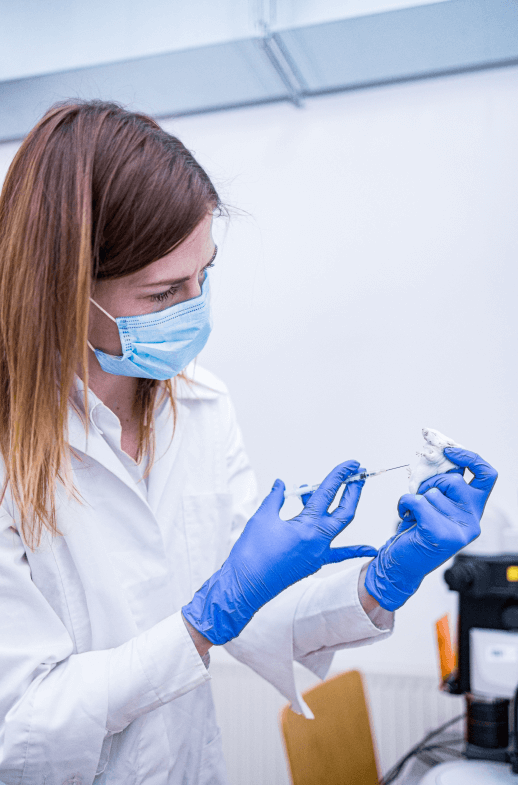
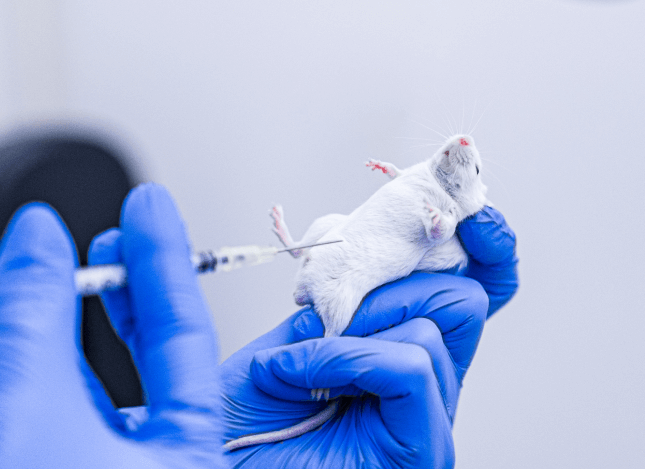
Models
KINETO Lab provides you to investigate the effect of your compounds in animal models which are representative of a variety of solid tumors and hematological malignancies which may be implanted either subcutaneously, orthotopically or into wide range of organs (spleen, breast, stomach, colon, kidneys, cranium etc.).
Implantations may be performed by injection of cell suspensions (with or without matrix), by implantation of tumor fragments or by injection of dissociated tumor cells.
Treatment
Based on in vivo toxicology and pharmacokinetic data, and our extensive experience we suggest the regime of treatment to be performed for in vivo studies: dose, timeline, individual and/ or combinational treatment, control group treatment.
Administration
Treatments may be administered per os, intraperitoneally, intravenously, subcutaneously, intradermally, intramuscularly, or by direct injection in the tumor. Precise administration modalities will be determined with our partner and written in the study plan.
Data
Our results include the evaluation of tumor volume over time, dissemination to other localizations, determined by imaging or macroscopic/microscopic analyses. During the treatment, we monitor general welfare of the animals, quantified by body weight measurements, which is supplemented by documentation of visible signals (fur, behaviour, injuries, etc.). Tumor growth can be followed also by our in vivo imaging system (IVIS).
Evaluation
At the endpoint of the experiment we evaluate macroscopic pathological changes on all vital organs as well as presence of metastases in distant organs, lymph nodes, and in the close proximity of the primary tumor. We measure weight of harvested tumor and particular organs, and flash-freeze them, or put them in formaldehyde for further ex vivo examination.
IN VIVO ANTIMETASTATIC STUDIES
KINETO Lab offers spontaneous models of metastasis where tumor cells have
to complete all steps of the metastatic process with next sites of injection of target organs:
subcutaneous tissue (lung)
spleen (liver, lung)
hind leg muscle (lymph node, lung)
wall of large bowel (liver)
kidney (lung)
dermis (lung, lymph nodes)
mammary fat pad (lung, liver, kidney, spleen, lymph node)
tail vein (lung)
portal system (liver)
carotid artery (brain)
left ventricle of the heart (all organs)
Models to investigate intertumoral effects and metastasis suppression
the removal of the primary tumor after several days offers an advanced growth of metastatic sites
IN VIVO IMAGING SYSTEM (IVIS®)
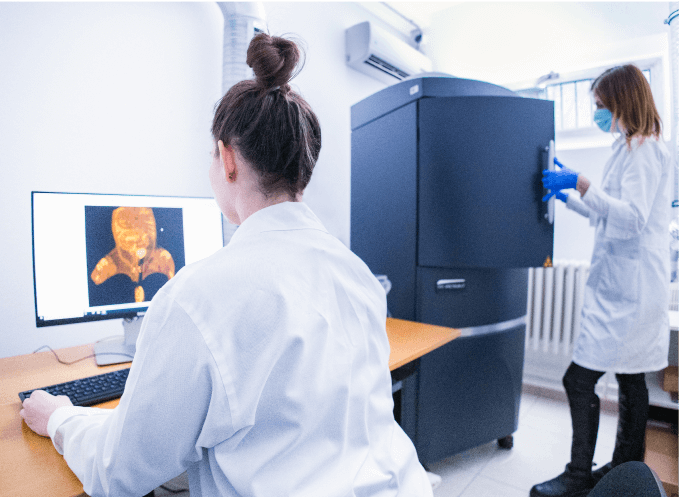
During in vivo studies, it might be crucial to obtain additional visual information of tumor growth and drug uptake.
KINETO Lab has access to in vivo imaging system (IVIS®, PerkinElmer), a cutting-edge technology for preclinical imaging research and development ideal for non-invasive monitoring of tumor growth and in vivo uptake studies by which provides the following modalities:
Micro CT
Fluorescence
Luminescence
For further details regarding services, please contact us on in**@*******ab.hu


